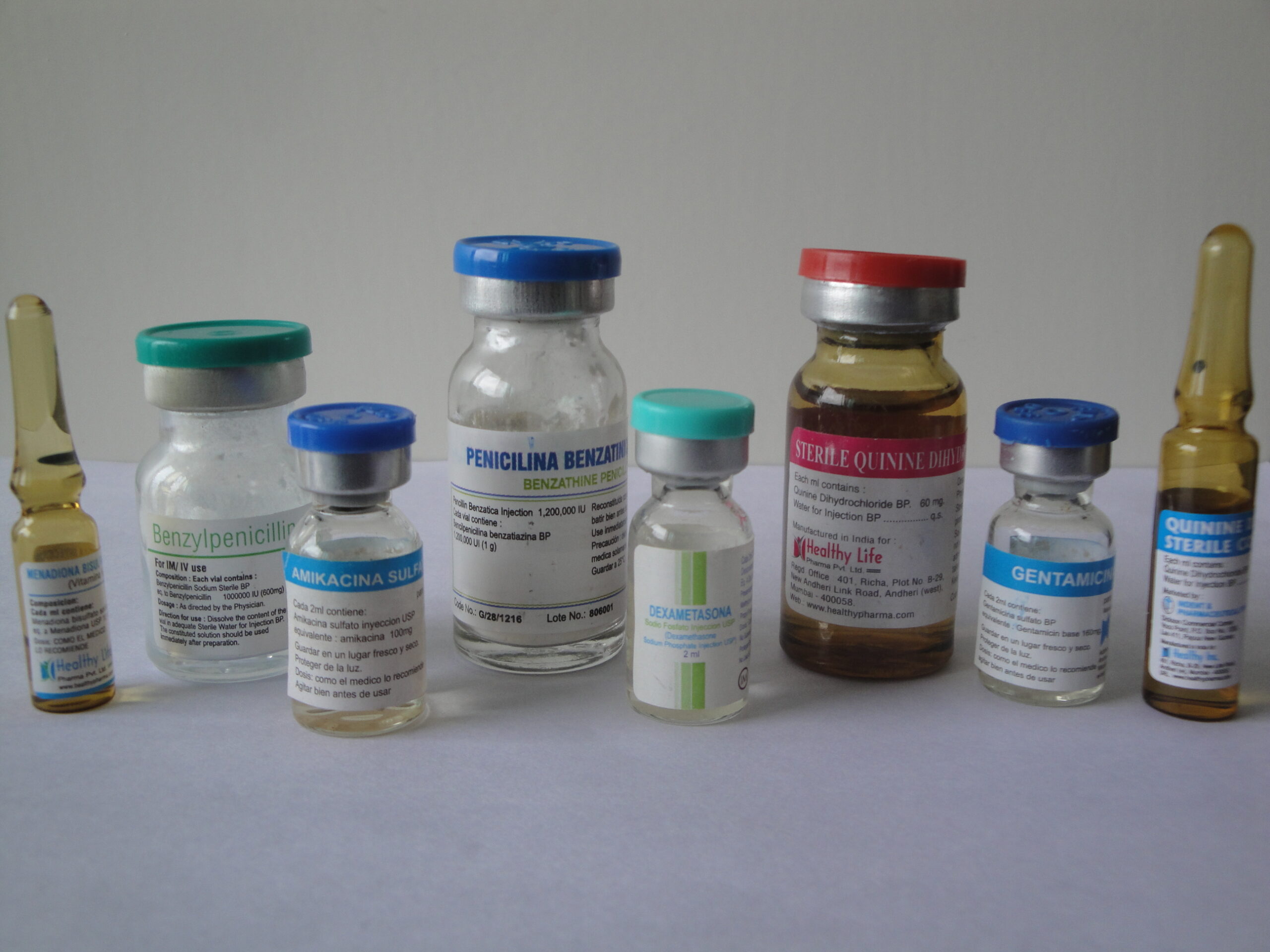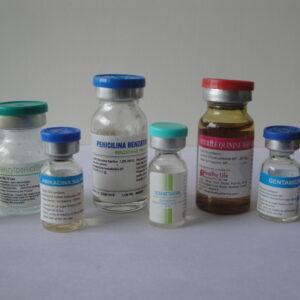Description
Hydroxy Progesterone Caproate veterinary injection
Hydroxyprogesterone caproate is a synthetic progestin used in veterinary medicine primarily for reproductive purposes. It is important to note that the specific usage, dosage, and administration of hydroxyprogesterone caproate in veterinary medicine can vary based on the species, breed, and individual health conditions of the animal. Only a licensed veterinarian can prescribe and provide guidance on the proper use of this medication. Below are general considerations:
- Estrus Synchronization:
Hydroxyprogesterone caproate is often used to synchronize estrus (heat) cycles in female animals. This can be important in breeding programs to facilitate more controlled and organized mating.
- Pregnancy Support:
In some cases, hydroxyprogesterone caproate may be used to support pregnancy in animals that have a history of reproductive issues or are at risk of miscarriage. It can help maintain appropriate progesterone levels during pregnancy.
- Reproductive Disorders:
It may be prescribed to address certain reproductive disorders in female animals, particularly those related to inadequate progesterone production.
- Assisted Reproductive Technologies:
Hydroxyprogesterone caproate might be part of assisted reproductive technologies, helping to regulate the reproductive cycle in animals undergoing procedures such as artificial insemination.
Administration:
Hydroxyprogesterone caproate is typically administered through intramuscular (IM) injections. The frequency and duration of injections depend on the specific therapeutic goals and the veterinarian’s recommendations.
Dosage:
Dosage can vary based on the species, breed, and individual characteristics of the animal. It is crucial to follow the veterinarian’s prescription and recommendations for the correct dosage and administration schedule.
Monitoring:
Regular monitoring of the animal’s response to treatment, as well as any potential side effects, is essential. Veterinarians may adjust the treatment plan based on the animal’s individual needs and response.
It is crucial to consult with a veterinarian for specific guidance on the usage of hydroxyprogesterone caproate in veterinary medicine. Veterinary professionals have the expertise to determine the appropriate dosage, administration protocol, and potential side effects based on the specific circumstances of the animal in question.
Hydroxyprogesterone caproate is a synthetic progestin hormone that is used in veterinary medicine for various reproductive purposes. It is commonly administered via injection and can be used in several ways:
Estrus Synchronization: In breeding programs for various species such as cattle, sheep, goats, and swine, hydroxyprogesterone caproate injections may be used to synchronize estrus cycles. This allows for more efficient breeding management and helps in coordinating the timing of mating or artificial insemination.
Pregnancy Maintenance: Hydroxyprogesterone caproate injections can be used to support pregnancy in animals that have a history of pregnancy loss or in cases where there is a risk of premature birth. It helps maintain adequate levels of progesterone, which is essential for maintaining pregnancy.
Reproductive Disorders: In some cases, hydroxyprogesterone caproate injections may be prescribed to treat certain reproductive disorders in female animals. These disorders may include conditions where there is inadequate progesterone production, which can affect fertility and reproductive health.
Assisted Reproductive Technologies (ART): In assisted reproductive programs, hydroxyprogesterone caproate injections may be part of the protocol to help regulate the reproductive cycle and optimize the success of procedures such as artificial insemination or embryo transfer.
The dosage and frequency of hydroxyprogesterone caproate injections vary depending on the species, the specific reproductive goals, and the individual animal’s condition. It’s crucial to follow the veterinarian’s instructions precisely when administering this medication to ensure its effectiveness and minimize the risk of side effects.
As with any veterinary medication, hydroxyprogesterone caproate should only be used under the guidance and supervision of a licensed veterinarian. They can determine the appropriate dosage, administration schedule, and overall suitability for the animal’s specific needs. Additionally, veterinarians can monitor the animal’s response to treatment and make any necessary adjustments to the protocol.
Hydroxyprogesterone caproate is a synthetic progestin commonly used in veterinary medicine, particularly in reproductive management. The usage of hydroxyprogesterone caproate for veterinary injections is generally associated with its role in regulating and supporting reproductive processes in female animals. Here are some common uses:
Synchronization of Estrus (Heat): Hydroxyprogesterone caproate is often employed to synchronize the estrus cycles in groups of female animals. This can be useful in breeding programs where the goal is to have a group of animals come into heat around the same time.
Management of Reproductive Disorders: Veterinary professionals may prescribe hydroxyprogesterone caproate to address reproductive disorders in female animals, particularly those related to inadequate progesterone levels.
Support of Pregnancy: In cases where there is a history of reproductive issues or a risk of miscarriage, hydroxyprogesterone caproate may be used to support and maintain pregnancy in animals.
Assisted Reproductive Technologies: This synthetic progestin can be part of assisted reproductive technologies, such as artificial insemination or embryo transfer, to enhance the success of these procedures.
It’s important to note that the specific dosage and administration guidelines for hydroxyprogesterone caproate in veterinary medicine can vary depending on the species, breed, and individual characteristics of the animal, as well as the intended purpose of the treatment. Additionally, the medication should be administered under the supervision and guidance of a licensed veterinarian.



